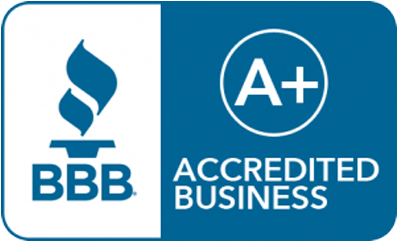READ MORE BELOW
Are you feeling the pinch?
Gas. Groceries. Diapers. Everyday items are skyrocketing in cost and hitting the wallets of every working American.
Like most people, we pull in our belts and adjust. That’s the way we were raised. But sadly, that’s probably not going to be enough.
Washington wants to meddle with the costs of other things: other vitally important things. At a time when you can least afford them to change.
You see the headlines: The Federal Reserve is raising rates. Rate hikes ahead. Rate hikes needed to stem inflation.
Rising rates can spell disaster, no matter what the cause.
Every time the Federal Reserve fiddles with interest rates from their policy committee rooms, real Americans are affected. Think car loans, the job market, credit card borrowing and one of the biggest stressors of all: home mortgages.
To be fair, the Federal Reserve doesn’t set interest rates on credit cards directly. Same for mortgages and personal loans. But it does control the federal funds rate, which controls the cost of borrowing for banks that lend to you. So the Federal Reserve’s rate changes tend to lead to changes in consumer interest rates that mirror their movements over time.
Here’s some big impacts that everyday Americans should be bracing for:
MORTGAGE RATES WILL RISE
Adjustable-rate mortgage holders, get ready for a wallop. Home equity borrowers should prepare for ballooning costs as well.
All this at a time when your house might actually be losing value, catching you in a longer term trap.
Some homeowners are considering fixed-income loan conversions: a pricey option. Others are reconsidering those big ticket dream homes or quick flip investment opportunities, which previously might have seemed like effortless money-making decisions.
If you’ve extended yourself a home equity line of credit, your rate might increase by 1-3 percentage points ahead. One rate hike tends to lead to another.
A lift in borrowing costs can price out home buyers who previously might have given their all to bid for certain properties.
Alternative assets aren’t as exposed to changes in interest rates. Gold and silver are something to consider if the real estate market isn’t as appealing as it has been.
CREDIT CARD RATES WILL RISE
Many Americans have gotten used to playing loose with their credit cards and credit lines. In a time of rising real estate values and easier job markets, high monthly payments can seem doable.
These consumers are in for a nasty shock. A rise of 1% or more in credit card rates could badly shake consumers who’ve borrowed using variable rate loans or just let credit card balances rise to “permanent” revolving status.
Some might begin hitting limits, while others might start missing payments altogether, bringing down their financial house of cards quickly.
JOBS WILL BE HARDER TO FIND
UCLA is forecasting a 4-5% rate of unemployment in 2023 – a significant rise.
The Federal Reserve is essentially sacrificing American workers to make sure inflation comes down. At the end of the day, either is a bad blow for individuals and their families, but two at once can be much worse.
CONSUMERS WILL BUY LESS STUFF
One of the hardest effects of Federal Reserve rate hikes is the way they can crush demand by consumers.
Less consumer demand means less of everything we need to survive and thrive: factory hours, shipping and delivery work, innovation. Companies size down to adjust and the front line workers are always the first to go.
Even if you are lucky enough to have a stable job, you might go out to eat less and maybe let your gym membership lapse. Cut out excess subscriptions you don’t use. Wait a bit more for that big screen television, economy car or new bedroom set.
For now, many consumers are hanging on and taking advantage of bargains that pop up from supply chain oversupply. Savings actually rose during the pandemic as many Americans used their pandemic payments wisely to pay down debt and build savings for the future.
But now that free money no longer flows, and everything is more expensive, that national savings kitty will be expiring fast.
WALK THE PATH LESS TAKEN
The herd always follows a few steps behind a leader. Are you following in the herd?
If your leader sends you off a cliff, there’s not enough time to see the danger before you are toppling off into space.
Don’t let this happen to you.
Many Americans have spent their lives building a financial legacy they can count on to sustain them through the thick and thin times, regardless of what happens in the stock markets, the Federal Reserve, government policy makers and more.
Time to think for yourself and get protected. Secure assets like gold and silver offer true diversification vs other traditional stock and bond markets, real estate and other assets.
Physical silver and gold also offer the opportunity to hold your asset in your own safe or safe deposit box. Wherever you’ll know it is safe.
Further Reading on The Federal Reserve
• LA Times
https://www.latimes.com/business/story/2022-06-15/what-does-fed-rate-hike-mean-for-consumers
• The Federal Reserve






